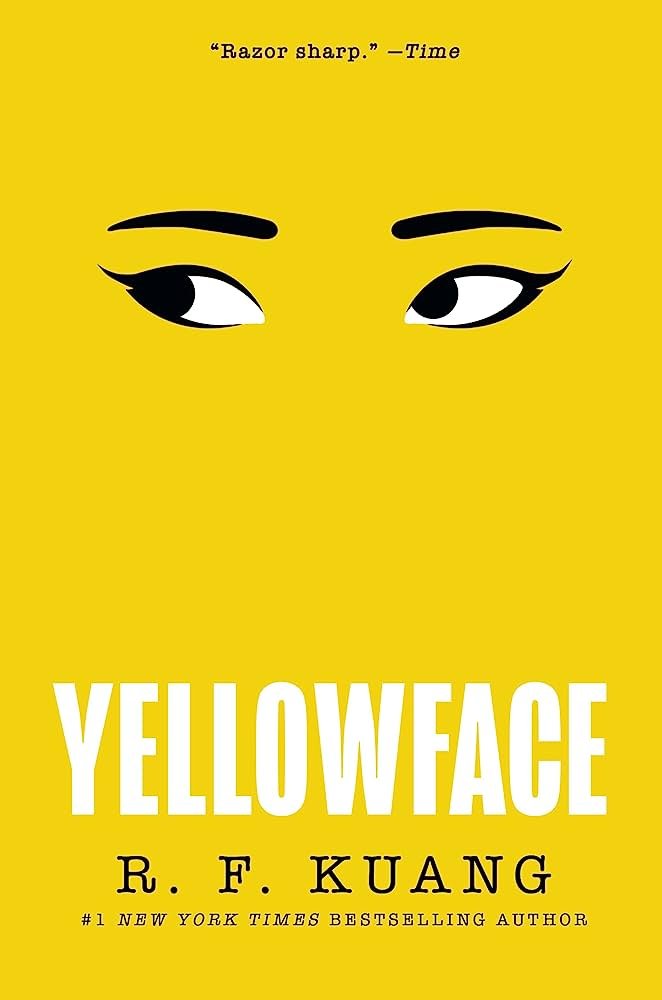June and Athena are grad school classmates who develop a friendship that is marred by envy. Specifically, June envies Athena’s success in not only getting her manuscripts published, but earning both a large sum of money and critical success at a young age. June is struggling to publish and to find her way.
Fate intervenes when Athena chokes on a pancake in front of June. While waiting for emergency services, June makes a quick decision to steal the only copy of Athena’s latest manuscript. A manuscript that no one else has seen. Athena is dead, so she isn’t talking.
June manages to change a bit of the manuscript to justify in her mind that she contributed to its creation and she passes it off as her own. It sells and just like Athena’s previous works, it does well. However, certain people become suspicious of June. They wonder why she, as a white woman, would decide to write about Chinese History? She is known to be Athena’s friend and the one who was with Athena when she died, and this work seems to be Athena’s style. Matters are not helped, when the publishing company decides to change June’s name obscure her identity and they post a picture of June that looks somewhat ethnically ambiguous. Is June trying to be someone she isn’t?
June’s paranoia at being discovered and having her success come crashing down is increased when she receives threatening emails from someone claiming to know the truth. In her paranoia, June even believes that Athena might still be alive and stalking her.
I’m not really a fantasy reader and although all of my coworkers have gushed over R.F. Kuang, I have not read her other books because of their genre. However, Yellowface is straight up literary fiction and when multiple coworkers described the plot, I knew that it was my kind of book.
I was loaned a copy of the arc by my manager and I absolutely could not put it down. Both June and Athena are difficult characters, but June’s behavior is so repugnant that even when there are moments that you might empathize with her, it’s hard. She deserves what comes to her.
Yellowface brings up uncomfortable scenarios such June’s publishers being accomplices in obscuring her identity. Song is June’s actual middle-name, given to her by hippie parents, however, anyone can easily see that it is also a common Korean and Chinese last name. The intent is to lead readers to believe she isn’t white. However, on the flip side, it also points to another situation where the publishing industry saying if June is her authentic self, that they cannot sell the idea of June paired with this work. This is damaging in more than one way.
First, it is implying that the author’s identity matters more than the merits of the work, and second, it is saying that neither June, nor Athena, matter much beyond their physical attributes. It made me wonder if this book could even be the same if the authors were male? This type of race promotion or hiding is somewhat similar to how female writers use male pseudonyms or initials to obscure their gender from swaying readers.
Of course all of these deep questions are tempered in the story because June did steal Athena’s manuscript and she does play along with all of the changes and lies. She feels that she deserves the success, and most insidious of all, that Athena’s success was not purely talent based, but also due to her ethnicity. June feels that life has been unfair and as Athena has been given an advantage, it is okay for June to cheat to win. We can look at all of the perceived or real injustices, but in the end, June is a thief.
Yellowface brings up unflattering aspects of art and the publishing industry. It also reveals an ugly side of human nature. It’s not an easy read, but it is a page turner and great pick for book club discussions. Also, I enjoyed Kuang’s storytelling and writing style so much, that I will definitely pick up her fantasy titles. I think Babel next!
